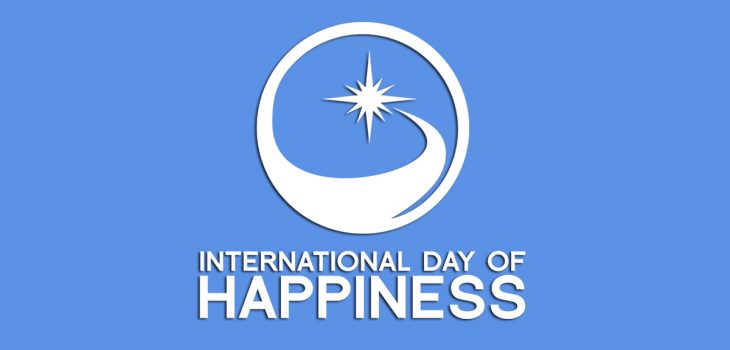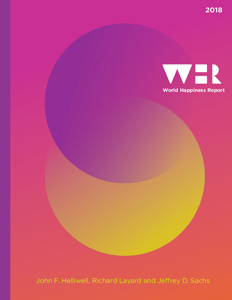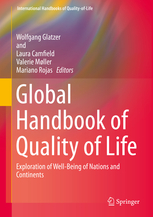The objective of this international event is to recognise the importance that happiness serves in the overall achievement of good health and well-being. Yet the significance of happiness and how one goes about achieving it has been hotly debated, especially within the philosophical, political and health sciences. What do we mean by the term ‘happiness‘ and, what rights and duties do we have towards each other in ensuring adequate levels of happiness on an individual and societal level? How does one measure happiness and compare these values on an international level? In the case of euthanasia, the pursuit of happiness might be the achievement of death, in that case, what can one do to support an individual in achieving these goals? You can imagine some of the difficulties in translating the pursuits of happiness into policy.
To get you thinking about the relevance of happiness in global health studies I’ve listed a few references with blurbs selected from both the physical and online Library collection at LSHTM:
The World Happiness Report 2018, UN Sustainable Development Solutions Network, UN World Happiness Report PDF
Not surprisingly, the top 3 happiest countries were dominated by Northern European countries; Finland, Norway and Denmark. However, in addition to measurements of subjective well-being, the report also included data of the happiness of immigrants where Finland came top. Interesting to note is that contrary to the traditional use of GDP as a measure of well-being, the report revealed that the richest countries did not necessarily have the happiest populations, where Latin America experienced a ‘happiness bulge’ attributed to strong a emphasis on familial and social relationships.
Glatzer, W. (2015). Global handbook of quality of life : Exploration of well-being of nations and continents (International handbooks of quality-of-life). LSHTM Catalogue
This book aims to bring together an insightful account of the concept of quality of life and well-being research on a global scale. Focusing on regions such as Sub-Saharan Africa, South America and Eastern Europe, contributory highlights include the importance of balancing the measurement of well-being between traditional economic and social values as well as issues surrounding migration and old age.
Withington, P. (2016). Utopia, health, and happiness. The Lancet, 387(10033), 2084-2085. https://doi.org/10.1016/S0140-6736(16)30532-3
In this insightful article, Withington celebrates the 500th anniversary of Thomas Mores’ Utopia and asks what we can learn from this text in the theme of helath and happiness.
Cieslik, M. (2015). ‘Not Smiling but Frowning’: Sociology and the ‘Problem of Happiness’. Sociology, 49(3), 422-437.
Cieslik warns that we shold be wary of attributing happiness to the pursuit and progress of modernity. Through qualitative interviews, evidence suggests that lay experiences of happiness are far more social in nature than previously put forward by theorists Durkheim and Marx and contemporary writers, Ahmed and Furedi. What truly matters to people is the balance between suffering and having a floursihing life.
Scikszentmihalyi, M. (2002). Flow : The classic work on how to achieve happiness ; [with a new introduction by the author]. (Rev. and updated ed.). London: Rider. Classmark: UJBM
The raw gist of the book is that happiness is not something that happens to a person or an experience of luck. Instead, happiness is a condition that must be prepared for, developed and refined by an individual. This book is a culmination of about a decades worth of research by Scikszentmihalyi, regarding the positive elements of the human experience such as joy and creativity which contributes to the process of full involvement with life, what the author describes as ‘Flow‘.












